The Spectator brings you the latest insight, news and research from the front line. Sign up here to receive this briefing daily by email, and stay abreast of developments both at home and abroad.
News and analysis
- New Covid-19 analysis from the University of Cambridge finds the R number has risen throughout England due to ‘increasing mobility’ and ‘mixing households’. It is estimated to be around 1 in the North West and South West, and below one in all other regions of England.
- American employment rose by a staggering 2.5 million in May – the biggest monthly jobs gain in US history.
- Covid-19 infections peaked roughly five days before lockdown was announced in England and Wales, according to a new study. Details below.
- Wearing face masks will be compulsory on public transport from 15 June. Details below. Dr John Lee also looks at the evidence on Coffee House.
- Dementia deaths during lockdown have been almost 50% higher than the five-year average.
- Russell Group universities will lower their entry requirements for students due to lower demand, according to the Telegraph.
- MI5 has labelled claims that Covid-19 originated in a laboratory as ‘fake news’ after former MI6 chief Sir Richard Dearlove suggested it was manmade and escaped from China. The security service believes the virus came from a Wuhan market.
- The head of GCHQ has said foreign states are trying to steal Britain’s research for a Covid-19 vaccine.
- Business Secretary Alok Sharma has tested negative for coronavirus after falling ill in parliament.
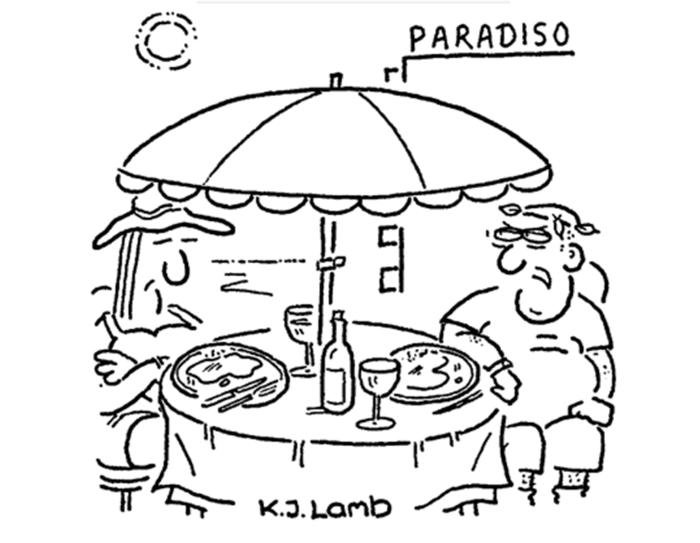
‘Can’t stand this foreign food — what’s wrong with pizza and curry?’
US jobs surge by 2.5 million; stock market soars by Kate Andrews
The US economy created 2.5 million jobs last month – the biggest monthly jobs gain since records began a century ago, albeit only a partial recovery from 22 million jobs lost during lockdown. These figures have blown expectations out of the water. Economists were expecting yet more unemployment: the consensus was an 8.3 million rise in unemployment hitting 20 per cent in May, up from 14.7 per cent in April. Defying the odds, unemployment actually fell to 13 per cent, signalling an unexpectedly early start of the rebound of the US economy. The biggest winners were workers in hospitality, who made up almost half of the new jobs, followed by construction. ‘This is a mind-blowing number and shows that the economy is improving,’ said Naeem Aslam, chief market strategist at AvaTrade.
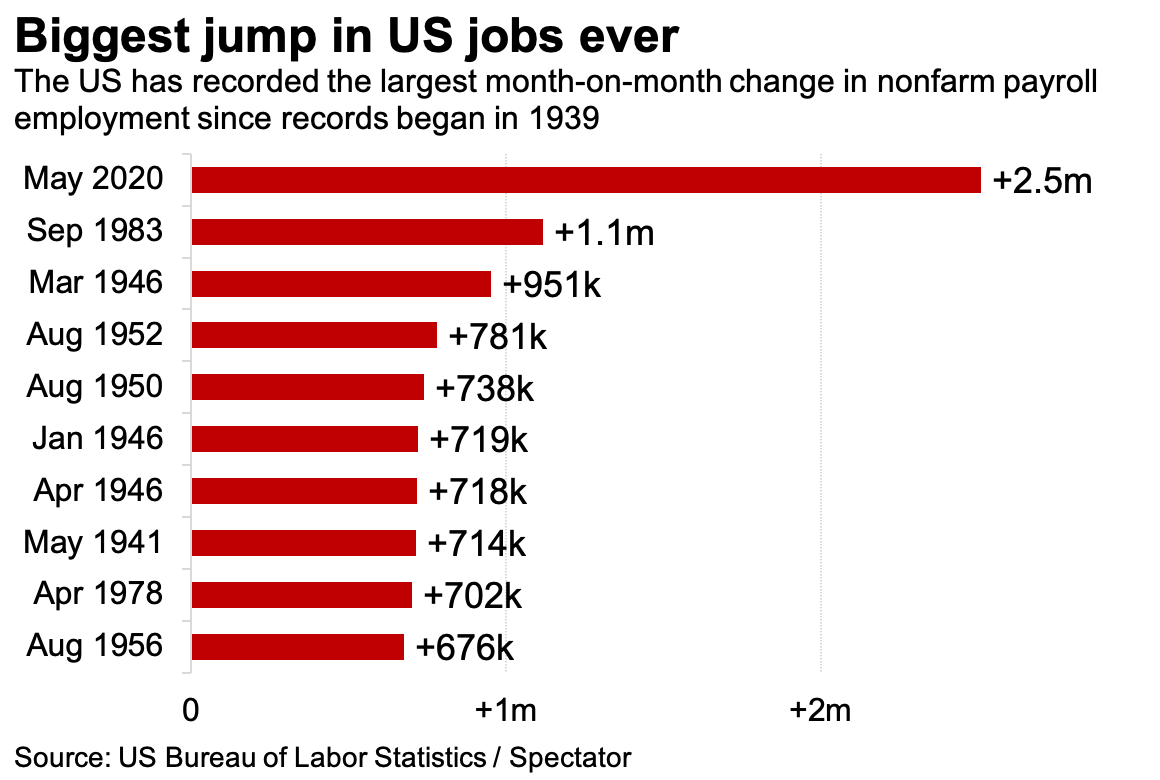
US unemployment still stands at 13 per cent, but a recovery of this scale had not been expected. ‘It seems the damage from the nationwide lockdown was not as severe or as lasting as we feared a month ago,’ said Scott Clemons, chief investment strategist at Brown Brothers Harriman. For some time now, the stock market has looked as if it was expecting a V-shaped recovery, the likes of which started today with the FTSE100 up 100 points. Its future looks brighter still, as the new jobs data has indicated an ‘open of nearly 600 points higher for the Dow Jones Industrial Average’. It seems in America, the jobs recovery could be V-shaped too.
But can this comeback be replicated? The UK jobs market has not really adjusted due to Rishi Sunak’s furlough scheme, whereby the government agrees to pay 80 per cent of the wages of people whose jobs might otherwise be at risk. As acknowledged by the Prime Minister this week, the UK is facing more job losses before it starts to rebound. As well, the UK is moving at a snail’s pace out of lockdown compared to its European counterparts, and certainly compared to US states, all of which has meaningfully reopened large parts of their economy. While Americans dine alfresco at restaurants, head to shopping complexes and even get ready for trips to Disney World and Las Vegas casinos, the UK has yet to confirm when hospitality and leisure businesses can properly re-open. The push from US workers to get back to it has undoubtedly contributed to America’s jobs boom – something we’ve yet to see in Britain, and (with the furlough scheme extended into the autumn) may not for some time.
In pictures

In words
Other countries have called me up and asked me if we’re the only ones with some drug against the virus or something. When I tell them, “Our country’s cultural standard levels are different to yours,” they’re left speechless. That’s the simplest way to put an end to the questions.
– Japan’s Deputy Prime Minister Taro Aso on his country’s successful handling of the pandemic.
New study suggests Covid-19 was falling before lockdown by Fraser Nelson
When lockdown was first imposed, there was little science to base it on. The virus was assumed to be growing at an exponential rate, with each infected person passing it on to about four others. The controversial assumption: only mandatory lockdown could stop this. This was based on guesswork but there was – at the time – no real alternative. There is now. We know enough about Covid-19 to look at hospital data and work backwards to assess the likely infection rate. Norway did this and was surprised to find its infections peaking before lockdown: in retrospect, its health chief said, lockdown was not needed.
Bristol University has done the same study for the UK. It shows that infections peaked about five days before lockdown and were in fast decline by the time it was introduced.
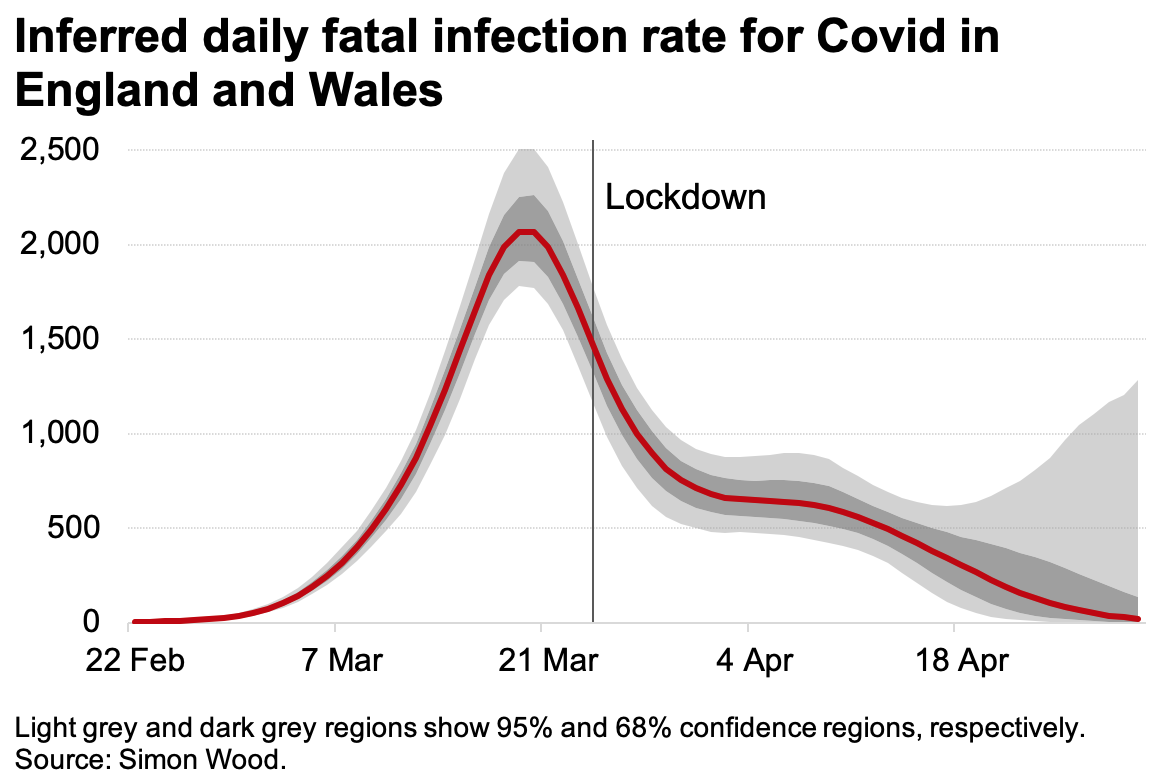
Several social distancing measures were already in place by then – but all on a voluntary, rather than compulsory basis. ‘It is suggestive that pre-lockdown social distancing may have been sufficient for the fatal infections to have started declining in England and Wales,’ Professor Wood tells me. This does not say that lockdown was pointless: the decline in infections might have been far less steep without it. But it strongly suggests that it was not because of lockdown. It’s a valuable contribution to the debate on whether voluntary measures would have been enough and whether the decline of the virus would have happened anyway. Full analysis here.
Global news
- New Zealand will mark 15 June as Covid-19 elimination day. Meanwhile Fiji has declared itself free of the virus.
- France has cancelled its annual Bastille Day parade due to the pandemic.
- Researchers in Denmark have developed a fully automated robot that can take Covid-19 swabs.
- The NBA, America’s professional basketball league, will resume its season at Disney World Florida from 31 July.
- Dozens of rhinos in South Africa have been dehorned to prevent poachers from taking advantage of empty parks to kill the animals. Meanwhile a German shepherd has become the first dog in the US to test positive for Covid-19.
- A Samoan professional rugby team that left the country for an away match on 23 February has yet to return home.
- Madagascar’s education minister has been fired after announcing a plan to buy $2.2 million worth of sweets. The minister said the treats would help take the edge off the ‘bitter taste’ of a herbal tea promoted by the country’s president as a Covid-19 remedy.
Our latest podcast
Government U-turn on masks?
Just over a month ago, the Health Secretary was describing the use of face masks as ‘weak science’ at the daily press conference. Indeed, throughout the peak of the pandemic, the advice was not to wear them because they didn’t help combat the spread of the virus. But from 15 June, they aren’t just recommended on public transport – they will be compulsory, with fines being imposed for people who don’t comply.
Has the science on face masks changed? It is not at all clear what updates there have been from Sage or other experts to result in such a spectacular U-turn. Concerns about lack of PPE early on in the pandemic were cited as reasons the government may not want to recommend the use of masks – in fear the public would buy up medical supplies needed for doctors, nurses, and care workers – but that is a practical barrier, not a scientific one. Like the two week day quarantine for travellers covered in yesterday’s Covid-19 update, it is becoming increasingly apparent that our exit out of lockdown is being led by politics as much as science. One could argue this is inevitable, and even desired, as politicians weigh up risks to public health, the economy, non-Covid-19 health concerns, education, and myriad of other issues impacted by lockdown. But it is a stretch for the public to think it is simply the science on face masks that has flipped so dramatically, without a shred of evidence to back it up.
Datawatch
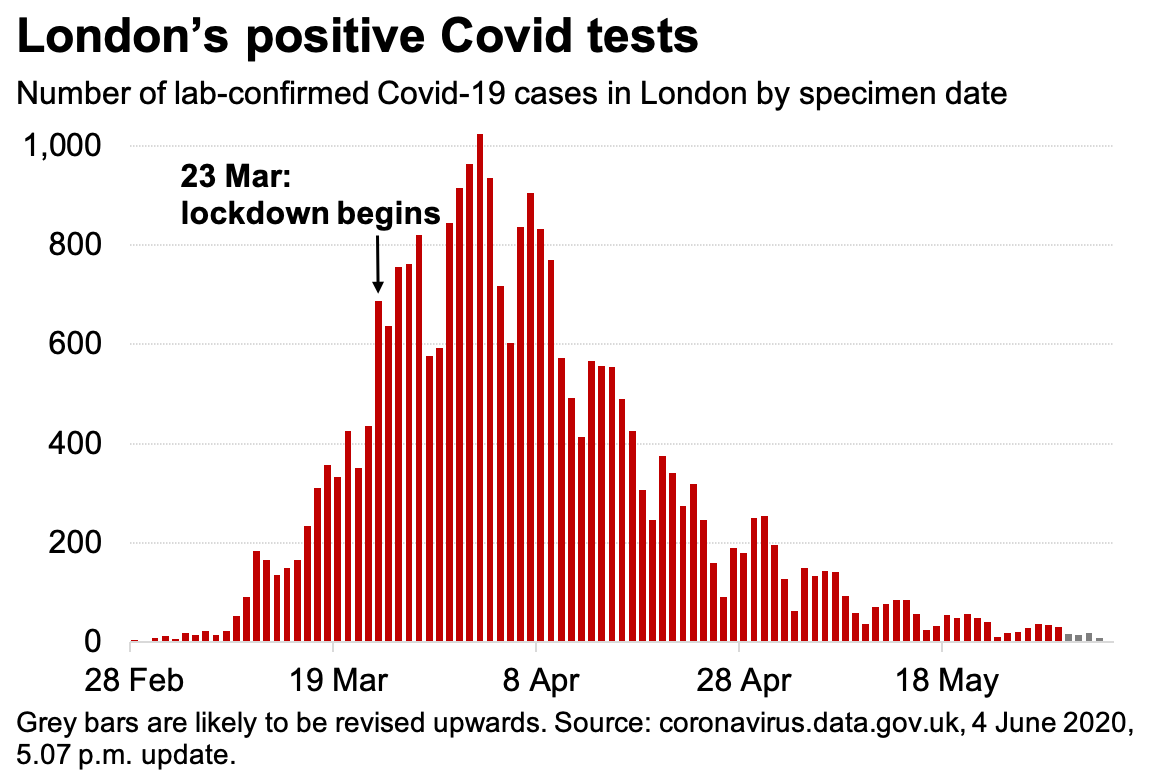
Coronomics
- The wealth of America’s billionaires jumped by $565 billion during lockdown, according to a report by the Institute for Policy Studies. Meanwhile some 42 million Americans have now filed for unemployment.
- BA flew 485 passenger flights in May. The company had flown the same number of flights by lunchtime on 1 May last year.
- People in the UK have lost £4.6 million to coronavirus-related fraud during lockdown, according to Action Fraud.
- Clothing retailer Gap has reported a loss of nearly $1 billion during Q1. Meanwhile Cirque du Soleil has temporarily cut 4,679 jobs and closed 44 of its shows worldwide due to the pandemic.
- More than 250 million bottles of unsold French wine will be distilled for use as industrial alcohol and hand sanitizers.
More from The Spectator
Whitehall on trial: how the government is preparing for the Covid inquiry – James Forsyth
Why are street protestors exempt from the corona clause? – Douglas Murray
Is Piers Morgan changing his mind on lockdown? – Steerpike
Welsh Tories are misreading the mood on Covid – Roger Awan-Scully
Abortions for minor disabilities need to stop – John Hayes
Self-isolation tips from Spectator Life
Six geopolitical thrillers to watch this weekend – Alexander Larman
Why Covid-free Montenegro should be your first post-lockdown trip – James Delingpole
Focaccia recipe –The Vintage Chef, Olivia Potts



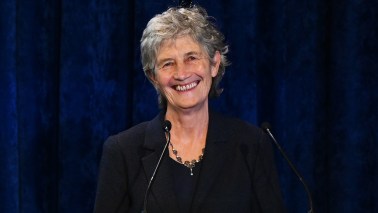


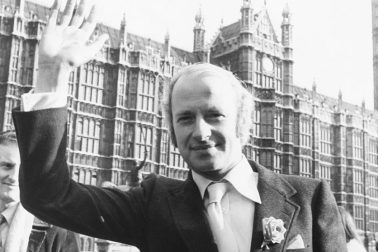
Comments